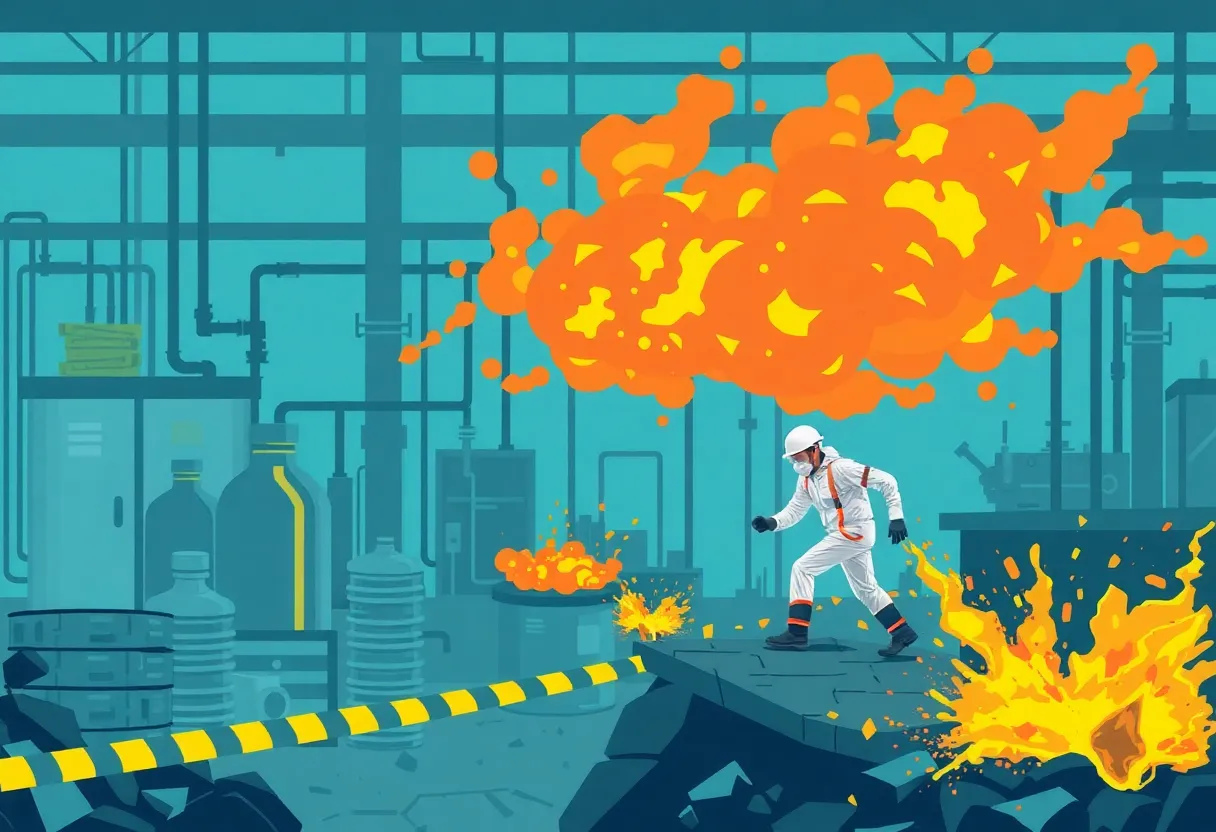News Summary
Pandemic Spikes Demand for Products, Uncovers Asbestos Risks
The COVID-19 pandemic has created a seismic shift in the manufacturing landscape, bringing with it an unexpected surge in asbestos-related legal liabilities. As global lockdowns led to a resurgence of economic activity, companies scrambled to meet heightened consumer demand, often compromising quality for speed. This has raised alarming questions about the increasing occurrence of asbestos contamination in everyday products.
Supply Chain Disruptions and Asbestos Connection
Over the last hundred years, the toxic mineral, asbestos, has been widely employed for its resistance to heat and chemicals, causing substantial risks within the supply chain. The pandemic intensified existing challenges by disrupting supply chains and prompting manufacturers to source parts from abroad, particularly from countries with less stringent regulations. Unfortunately, this often means obtaining components from areas where labeling is misleading, primarily for political reasons.
With this surge in demand came a perilous reality: companies began to cut corners. A known issue emerged where asbestos-laced talcum powder – commonly found in cosmetics and everyday products like chewing gum and prescription drugs – infiltrated the market. Such products were never meant to contain asbestos, but lax quality assurance and control measures permitted the introduction of these harmful substances.
Legal Ramifications Intensify
As businesses that once turned a blind eye to the implications of asbestos exposure are now forced to reckon with the consequences, the legal landscape surrounding asbestos liability is rapidly evolving. Even in states where companies might not have direct knowledge of asbestos contamination, plaintiffs’ lawyers are poised to pursue substantial damages for individuals affected by exposure.
The Global Context
Despite a domestic ban on asbestos in the United States, the reality remains grim; many countries, including China and Russia, continue extensive mining and utilization of this hazardous material. Consequently, foreign imports, sometimes tainted with asbestos, might avoid scrutiny, thanks to loopholes in the EPA’s regulations. The agency’s ban only addresses specific types of asbestos, allowing foreign manufacturers to exploit similar materials to evade strict guidelines.
Workers at Risk: The Unsung Heros
As the pandemic raged on, essential workers operating within the asbestos abatement sector were also faced with unprecedented challenges. These workers fight against both the risks of exposure to asbestos and complications from COVID-19. Many of these workers are immigrants, often reluctant to report unsafe conditions due to fears of repercussions, which raises concerns over workplace safety.
This workforce is integral to slowing the tragic toll of asbestos-related illnesses, which include severe health consequences such as lung diseases and cancers like mesothelioma. Yet, studies suggest that healthy practices remain inconsistent, as workers face pressures to complete jobs rapidly, sometimes cutting corners on safety in the process.
Community Responses and Support Systems
Amid these hazards, support groups have emerged to assist asbestos abatement workers and their families, navigating the complex health risks and financial strains arising from exposure. Despite efforts like the Asbestos Hazard Emergency Response Act, challenges persist, as demands for safer practices in modern construction remain critical.
Organizations advocating for workers’ rights continue to emphasize the need for robust protections and heightened awareness of the dangers presented by asbestos exposure. This sentiment echoes across industries as business leaders are called upon to work with industrial hygienists to adopt better safety measures.
Time to Address the Legacy of Asbestos
The last active users of asbestos are often adrift in a history of ignoring the grave health risks associated with this material. Even as the number of asbestos-related deaths may be on the decline, thousands still succumb to exposure each year, marking a disturbing trend in public health. Ensuring safe working conditions and proper personal protective equipment must remain a priority for those working to address the legacy of asbestos, particularly in the context of modern manufacturing and construction practices.
As the world continues to navigate the aftermath of the pandemic, the imperative for recognition, accountability, and safety regarding asbestos exposure has never been more important. Without a united front to tackle this lingering threat, the true cost of ignoring this toxic legacy may haunt us for generations to come.
Deeper Dive: News & Info About This Topic
HERE Resources
Asbestos Removal Efforts Gain Momentum in Paterson
Understanding the Ongoing Mesothelioma Crisis in America
Miami Investment Firm Acquires Leading Asbestos Abatement Provider Amid Wildfire Concerns
MassDEP Cracks Down on Asbestos Violations in Holyoke
The Undeniable Threat of Asbestos: A Looming Health Crisis
Drones Rise as Game Changer in Asbestos Management
Asbestos Alarms Ring as California Wildfires Rage On
Exploring Surgical Options for Mesothelioma Treatment
Mesothelioma Basics for Newly Diagnosed Patients
Medical FAQs About Mesothelioma Diagnosis and Treatment
Additional Resources
- Industry Week: Asbestos Persists in the Supply Chain
- Wikipedia: Asbestos
- Wired: Asbestos Removal is a Hard Job
- Google Search: Asbestos Removal Challenges
- The Daily Pennsylvanian: Philadelphia Schools Asbestos Issues
- Encyclopedia Britannica: Asbestos
- OHS Online: Asbestos Removal During the Pandemic
- Google News: Asbestos Removal Coronavirus



















